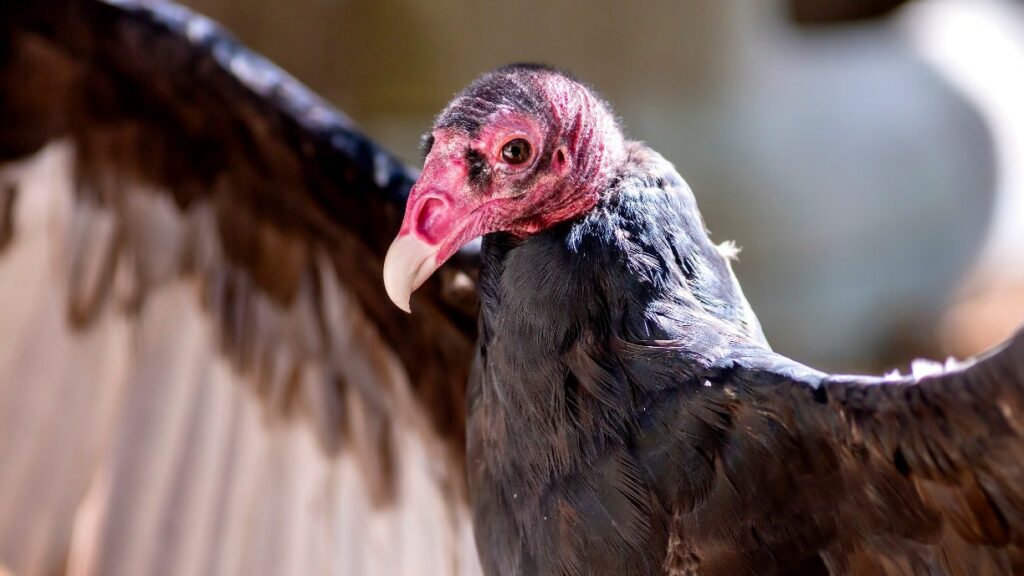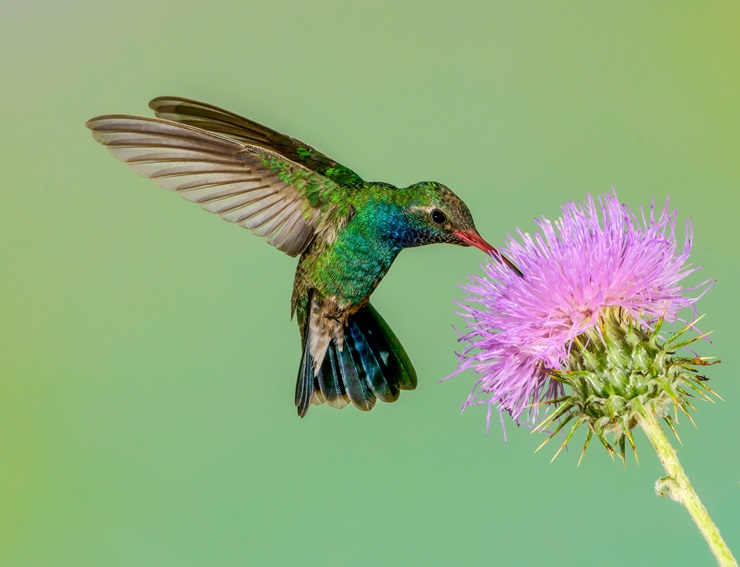Birds have a much different lifestyle than mammals or reptiles. As such, they’ve developed specific skills required to survive.
It’s well-known that birds have excellent vision. But what about their sense of smell?
Although it was generally believed that birds cannot smell, recent discoveries showed that many bird species are excellent smellers! However, the most curious dilemma is the following – do all birds have such a strong sense of smell?
Do you want to learn the answer? If so, keep reading! We’ve also shared interesting details about some discoveries concerning a bird’s sense of smell!
Do Birds Have a Sense of Smell?
Until recently, scientists believed most bird species didn’t have a sense of smell because, seemingly, their olfactory gland was believed to be much smaller than that of other animals, just like their nasal passages.
Recent discoveries, however, show that some birds have an excellent sense of smell, which is sometimes even stronger than that of a human!
The thing is that studying other senses besides vision is relatively challenging in birds, which is why there’s little evidence on how exactly they smell and how much this facilitates survival.
For example, Gabrielle Nevitt, a professor at the University of California-Davis, has spent two decades trying to understand how seabirds detect scents, and one of the things that stopped her from demonstrating that was the generally approved idea that birds cannot smell.
How Do Birds Smell?
Birds smell through the nostrils found on their beaks. They’re often called nares and their location on the beak may be different depending on the species. As such, birds do not actually have a nose like humans do, but the nostrils inhale different scents alongside air, allowing them to smell their surroundings.

The Turkey Vulture – One of the Birds with the Strongest Sense of Smell
Turkey vultures are among the few birds with an excellent sense of smell. However, it took scientists a while to discover this.
Some attempts to test a Turkey vulture’s smell in the early 1800s were, most of the time, unsuccessful. Later, though, it was discovered almost by mistake that Turkey vultures do, in fact, have an excellent sense of smell. How, you’re probably wondering, right?!
Well, in the 1960s, Kenneth Stager, who had been researching the topic, talked to some engineers looking after California’s gas pipeline. It turned out that they were able to say whether there was a leak in the pipe when Turkey vultures gathered around it.
It was then discovered that around 30 years earlier, the company added a substance called mercaptan to the gas which made it extremely smelly, thus facilitating gas leaks.
Well, Turkey vultures were attracted by this smell because they were much more sensitive to it than humans. But why were they attracted to it? Shouldn’t they avoid it?
Well, further studies showed that some animals, like deer, give off the same smell of mercaptan after dying, so Turkey vultures probably thought they were heading toward a food source.
Upon discovering this, Kenneth Stager blew some mercaptan across the hills of California, and, surprise, Turkey vultures weren’t late to arrive!
Do All Birds Have A Keen Sense of Smell?
Now, it would probably be impossible to confirm whether the sense of smell is just as keen in any bird species – after all, there are thousands, and all are different!
Moreover, it’s highly likely that the degree to which their sense of smell has developed is dependent on their habits and lifestyles. Take the woodcock and the kiwi.
The former evolved in an environment packed with predators, and its vision is much more developed because it should be on a constant watch out for potential threats.
The latter, on the other hand, evolved in habitats free of predators, so the ability to see wasn’t that necessary, which is why it focused on the sense of smell. Studies show that kiwis can smell earthworms roaming up to around 6 inches deep in the soil! Besides, do you know that the kiwi is the only bird species that has developed a nostril at the tip of their beaks, not at the base?
Moreover, it is known that certain birds, starlings included, choose the leaves of aromatic plants for their nests because they keep parasites away.
Then, seabirds like storm petrels are able to recognize krill odors.
Carrion crows are also known to have fully functional olfactory systems and use their sense of smell to find food and even distinguish different objects by their scent.
Can Hummingbirds Smell?

On the other hand, little is known about other birds. Hummingbirds, for instance, are believed to have an active sense of smell, but since their olfactory bulbs are tiny, there’s little scientific evidence showing exactly how developed this sense is.
Despite this, scientists confirmed that hummingbirds do use their smell to avoid threats and smell insects.
This was demonstrated via an experiment involving 100 hummingbirds, which were put in front of two feeders – one with sugar water and another with sugar water mixed with chemicals resembling scents of insects that pose a threat to birds.
As we’ve already mentioned, the results show that hummingbirds do indeed rely on their sense of smell to avoid threats.
Can Parrots Smell?
But what about parrots – by far one of the most popular pet birds? They are thought to have a sense of smell, but do they use it? Scientists aren’t sure about this.
Some bird enthusiasts and parrot owners confirm they’ve never seen any signs of parrots smelling something.
One exception is a parrot called Kākā which was spotted doing something which looked very much like smelling. It is also believed that Kākāpō and Kea have great senses of smell, but as mentioned, little scientific evidence exists.
